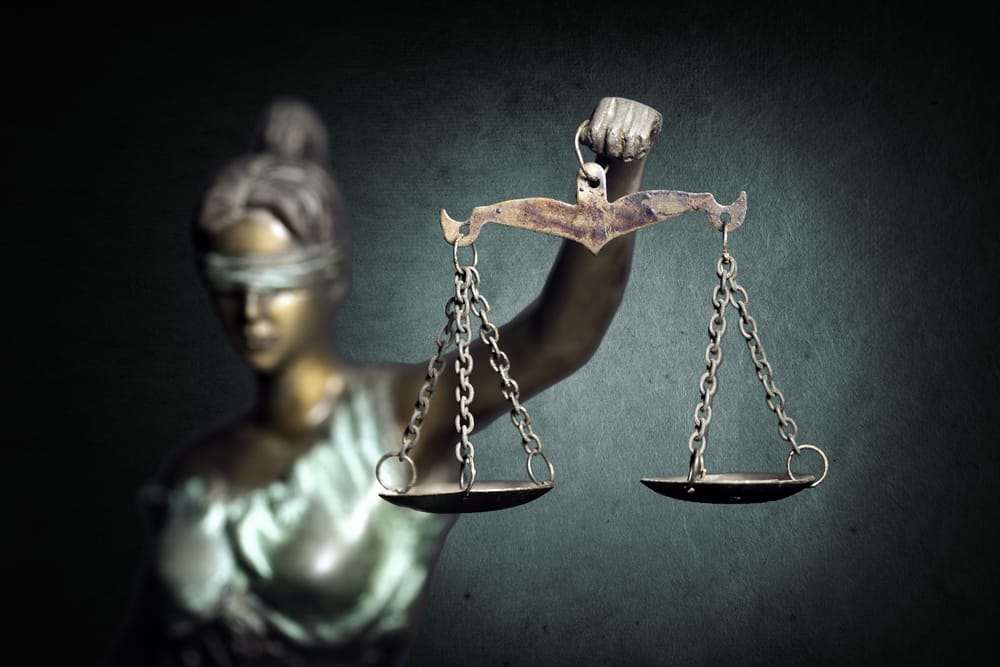If you have been arrested for a drug-related crime, or think it is a possibility in the future, it’s vital you know your Miranda Rights. Of course, having a good understanding of your Miranda Rights is a good idea for anyone living or traveling in the US, so you know exactly what to do if things go awry.
If you ever have questions about your rights being violated, call the skilled and experienced St. Louis criminal defense attorneys at Combs Waterkotte at (314) 900-HELP.
What are Miranda Rights?
The Miranda Rights protect you from being forced to talk to the police when it may be detrimental for you to do so, such as when you’re arrested for a crime. They were introduced to stop law enforcement forcing people to confess to crimes before they’ve exercised their right to legal counsel.
The Miranda Rights came into effect after a case in 1963 when a man called Ernesto Miranda was brought in to participate in a police lineup for rape charges. The victim identified Miranda as the perpetrator, so he was arrested and questioned without being read his Fifth Amendment right about self-incrimination, or his right to legal counsel (Sixth Amendment right).
Miranda confessed in writing and he was later sentenced to 20 to 30 years in prison for the crime. Later, although that confession said he was aware of his self-incrimination rights, he was able to appeal his case based on the fact he’d not been read his rights. After a lengthy appeal case, the Supreme Court ruled in Miranda’s favor, though the State of Arizona retried him without the confession and he was again convicted and sentenced.
Now, all police officers must read a suspect their Miranda rights before they’re taken into custody, which is the refrain “You have the right to remain silent. Anything you say can and will be used against you in a court of law. You have the right to an attorney. If you cannot afford an attorney, one will be appointed to you.”
What are My Fifth and Sixth Amendment Rights?
The Fifth Amendment right states that no one “shall be compelled in any criminal case to be a witness against himself”, which means you cannot be forced to give incriminating evidence.
The Sixth Amendment right states “in all criminal prosecutions, the accused shall enjoy the right … to have the assistance of counsel for his defense”, so you have the right to a self-appointed or state-appointed criminal defense lawyer.
Miranda Rights FAQ
When Do Miranda Rights Have to be Given?
Miranda Rights must be read to a suspect before they are taken into custody. If they are not read, anything you say cannot be used against you in court.
Can I Invoke My Miranda Rights Without Being Read Them?
Yes, if you find yourself in a situation where you believe invoking your rights, you can say “I invoke my right to remain silent and I wish to speak with my/an attorney.”
Can I Invoke My Miranda Rights Even if I’m Just Being Questioned?
Yes, you can decide to stop speaking with police and contact your attorney if you’re being questioned about a possible crime. Law enforcement has to respect this right, and if they truly believe you are guilty of a crime and can take action against you, they will have to charge you, read you your rights, and take you into custody.
Can a Criminal Case Be Dropped if the Miranda Rights are Not Read?
Yes, as the Miranda rights are designed to protect suspects from being unlawfully questioned and forced to confess to crimes, regardless of whether or not they were actually responsible for them, and to force law enforcement officials to collect the right evidence to put together a sound court case. If this is not done properly, any evidence collected may be inadmissible in court and thus the case may be dropped.
Why Should I Exercise My Right to Remain Silent?
Many people don’t realize just how powerful the right to remain silent is, and it’s vital that you invoke the right to remain silent whether or not you believe you are innocent or guilty of what you are being accused of. As soon as you have been read your Miranda Rights, you should only speak if it’s absolutely necessary, and not to talk about your case other than to ask for your attorney.
The less you say, the less evidence law enforcement will have against you and the easier your defense will find it to fight the charges. Remember that even things you say that you feel are unrelated may be taken out of context and used against you, so don’t say anything until you have spoken to your defense.
Should I Get My Own Legal Counsel or Use a State-Appointed Attorney?
Whenever possible, have your own legal counsel. While a state-appointed attorney will do their best to defend you, they won’t be able to offer you the same level of attention and aggression you need from your criminal defense attorney to fight the charges properly.
What Should I Do if I’m Arrested for a Drug-Related Crime in Missouri?
If you’re arrested for a drug-related crime immediately stop talking and go calmly. Any arguing or resistance you put up will be noted and will not help your case, even if you feel your rights are being violated.
In an ideal situation, you will have memorized the phone number of your criminal defense attorney, or one you would be happy to have defended you, and those of any close friends or family members who would be willing to help you. At worst, know which criminal defense attorney you wish your family member or friend to contact.
Don’t talk to the police, make any decisions, or sign anything before a lawyer is present and has advised you clearly on your next steps. This will give them the best chance of getting your case dismissed or the charges minimalized as much as possible.
Regardless of what drug charges you may be facing it’s important you know what your Miranda Rights are and understand how to best use them. If you find yourself in a position where it’s necessary to use your Miranda Rights in the St. Louis metro area, we’re here to come to your aid and fiercely defend you. Contact today for a free consultation or to get us working on your drug charges as soon as possible.







